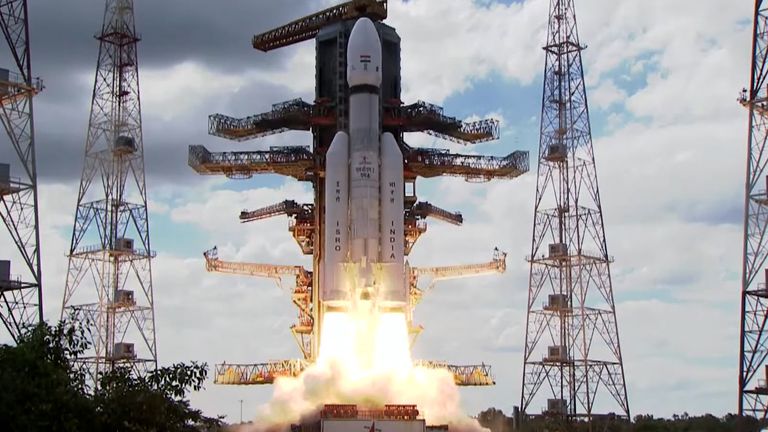Nearly four years ago, Indian Prime Minister Narendra Modi hugged the director of India’s space agency who was reduced to tears after losing Chandrayaan-2 – his country’s first attempt to land on the moon.
Today, it was tears of joy.
This isn’t just a huge triumph for Indian scientists and engineers.
As Chandrayaan-3 touched down near the lunar south pole, it landed India in an exclusive club of just three other nations who have achieved the feat – the US, China and the former USSR.
People in Ahmedabad, India, watch a live stream of the spacecraft’s landing
Mr Modi will rightly revel in his nation’s achievement but this is about business as well as politics.
By its engineers’ own admission, Chandrayaan-3 isn’t the most sophisticated spacecraft ever built.
But they have achieved what other countries (most recently Russia) failed to do with an innovative, low-cost design.
Read more:
India makes history in space – here’s what we learnt
Moon landing – as it happened
Please use Chrome browser for a more accessible video player

2:31
Why is India’s moon landing important?
Leaders in space like the USA, Europe and Japan are now looking to the private sector to explore and commercialise space.
Sticking a moon landing is about the best pitch India’s high-tech sector could have wanted for its readiness to partner in international space projects.
Just as with NASA’s moon landings in the 1960s and 70s, the achievement of ISRO (Indian Space Research Organisation) will also inspire millions of young Indians pursuing careers in science and engineering.







